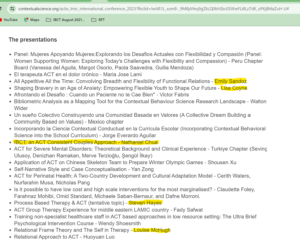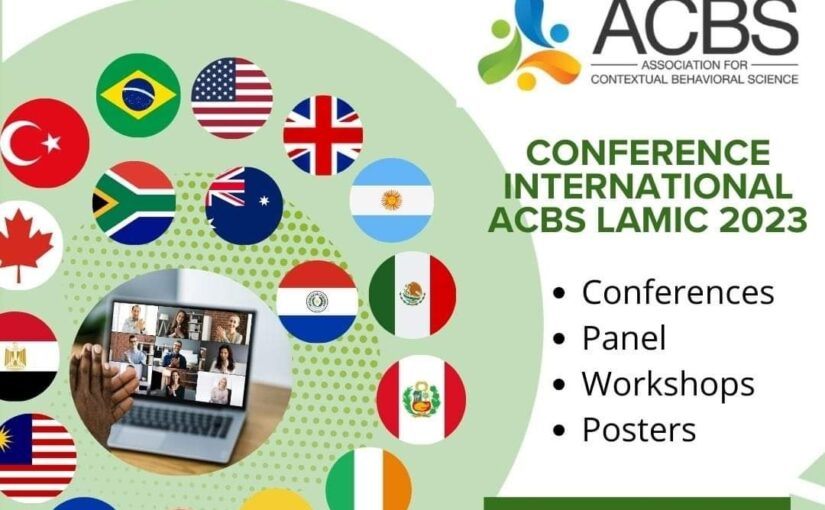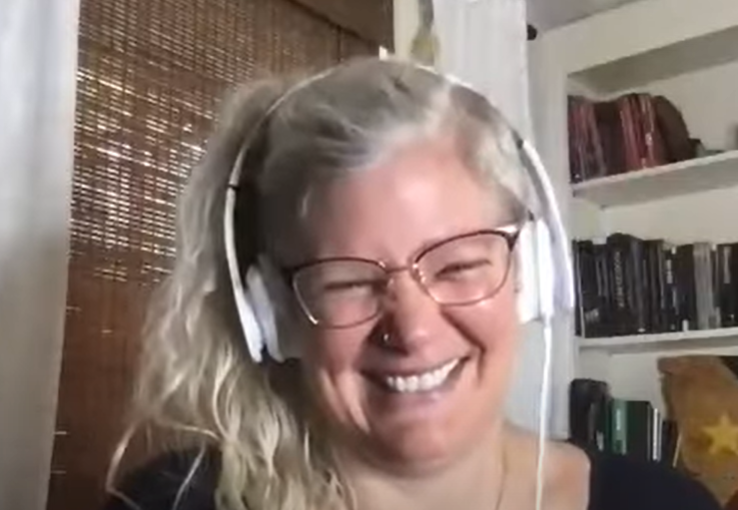Tag: Online Video Counseling
Two Shrinks Over Drinks with Dr. Matthieu Villatte: 15th Anniversary Edition Part 2!
Two Shrinks Over Drinks, 15th Anniversary Edition! Interview with Dr. Matthieu Villatte Part 1
Is Counseling Really Worth All the Risks? Video!
Listen on Spotify:
Nathaniel Chua’s First International Talk Now on the One Life Only YouTube Channel!
Listen to this on Spotify:
Invitation to all counselors and therapists!
Attention counselors and therapists from the Philippines. Nathaniel Chua will be one of the speakers in an upcoming conference for therapists from LMIC or Low or Middle Income Countries, sponsored by the Association for Contextual Behavioral Science (ACBS)! He will give a one hour talk about Integrative Behavioral Couples Therapy: An ACT-Consistent Approach for Couple Therapy. He will be the lone speaker from the Philippines.
“Everyone involved in the organising of the conference does so voluntarily. No honorarium is provided. All collected funds will be channelled to DNC training funds and various chapters within developing nations to support future activities within developing nations.”*
Other speakers are Steven Hayes, Louise McHugh, Lisa Coyne, and Emily Sandoz

Here’s the link to the event:
Two Shrinks Over Drinks AGAIN!
In this episode for our series, Shrinks Over Drinks, I talk with Dr. Niklas Torneke, a Swedish psychiatrist who has authored three books in English and more in Swedish. Two of his books in English have been very instrumental in my journey into ACT (Acceptance and Commitment Therapy), RFT (Relational Frame Theory), and behaviorism. He is an authority when it comes to the uses of language and metaphors from an RFT perspective.
I have myself seen how his work has informed me inside the counseling room and how much it helps people see through the veneer of language.
Listen on Spotify!
Another Two Shrinks Over Drinks! With Dr. Emily Sandoz!
If you prefer to listen to this video interview, you can click the play button below:
Are you depressed? Video!
Are you depressed?

by Nathan Chua
No, you’re not. You are called by a name, and I don’t think your parents or guardians would name you, “Depressed!” Yes, this is kind of a play on words, but it can also serve as a reminder to you that your depression doesn’t define you. I have met a good number of clients who have come to me saying that they have been diagnosed with major depression and subsequently medicated for something they are supposed to have that causes the depression…some sort of brain disease. It no longer surprises me when clients come to me and say that they had a chat with their provider for 15 minutes and voila, they are labeled as being stricken by something that is called major depressive disorder or MDD! Sad to say you’re broken and you need some fixin’!
These conclusions are made in the service of a manual that says someone has a problem with depression when it lasts for a couple of weeks or more, plus a few other criteria listed. Most people who get such a diagnosis often end up feeling like they have very little control over their choices regarding how they want to spend their time. Much of their time from thereon will be focused entirely on getting rid of this depression. They begin to adjust their lives and expectations about their lives and their relationships around a diagnosis. People have to be careful about my feelings. They shouldn’t say anything that can trigger my depression or sense of self-worth. All of a sudden a mask is worn throughout their remaining existence.
A few words about our sadness:
I have recently shared this thought experiment about our sad feelings. It speaks about how understandable our negative feelings are. If you were in a funeral wake to visit the friends and loved ones of the departed, wouldn’t you be surprised if anyone came in without at least a tinge of sadness in their face? If you lost someone you cared for, would you think you’re abnormal for feeling sad? Wouldn’t you once in a while even after years following the death of a loved one, still feel a sadness that comes with a reminder of the person who once meant so much to you? Wouldn’t that be about just being a person who has feelings? And yet we have a system or a culture that says you only have a couple of weeks to get over your sadness.
The loop:
I remember an expert sharing that depression as we interpret it today, is not about the presence of sadness, but the unwillingness to feel sadness. The loop happens when you and I try to get rid of our feelings of sadness. This can come in many different forms. We may try to distract ourselves, opt out of activities we enjoy, ruminate about the guilt and the what ifs, and some of us even take substances. The sad news is unless you have a major brain injury or you are close to that age when you get hit by Alzheimer’s, you will experience sadness sooner or later. No amount of avoiding can help you on your way to being unable to feel. Take it from me, there are times I wake up feeling sad for no particular reason at all. That’s just the case about feelings. They visit us once in a while and they come and go of their own accord.
In short, the loop kind of looks like this, you don’t only feel sad, but also feel sad that you are sad.
It’s not what you are, it’s something you have:
You are not a walking depression. You can just observe. Take a full day without any medication and see if you will feel sad 24 hours non stop. Chances are you will find that your sadness only visits you in spurts. And when it is a longer spurt, chances are you are trying to suppress it. The problem with that strategy is that the more you try to forget about your sadness, the more you remember. Because trying to forget something only reminds you of what you have to forget!
The meaning behind the sadness:
Finally, this article won’t be complete without some kind of redemption. If our sadness were meaningless then I would be first to recommend that all of us should find ways to escape it. For example, if you were being physically or verbally abused by a partner or a guardian, this is needless pain that all of us can and should avoid. But the kind of sadness I speak about here does stand for something. Our sadness means we have lost something or someone of great value to us. We have sad feelings for a reason. We are sad for the loss of a loved one because…we loved them! If our sadness stood for something as life-changing and powerful as love, then why should we be ashamed of it?
I remember an author and psychologist mention that we have tears come out of our eyes because they were meant to be seen. I often say this to my clients, your tears today tell me something about you that any form of running away from or medicating your way out of your sadness cannot. They tell me something about you that makes me feel connected to you. You’re just as human as I am.
So next time you lose someone or something that matters to you, take a moment and look at the other side of the coin. This moment is precious because your sad feelings tell you you have lost someone precious. And for you to feel the pain of the loss, is the essence of why it is both difficult and a privilege to be part of the human species.


